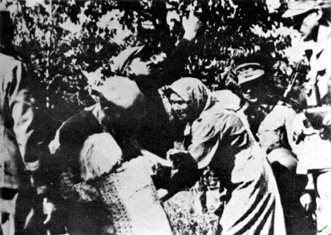Death is weird if you think about it. One moment we’re here, the next we’re gone. Different religions have different explanations for what happens next, but none of them answer the questions that really bother me. Will it hurt? Who will I see first? Will I go to the afterlife immediately, or will I linger on Earth for awhile?
Below are five different quotes from people facing death. Feel free to share your own thoughts in the comments.
#1 - Marie-Antoinette
Contrary to her reputation as a spoiled princess, Marie-Antoinette showed remarkable courage in the face of the guillotine. As they led her up onto the execution platform she kept her sorrow veiled. No tears. No screaming. No cursing. All she did was offer an apology to the executioner when she stepped on his foot. “Pardon me, sir, I did not mean to do it.”
#2 - John Adams
Even though he was seven years older, John Adams always said he would outlive his rival, Thomas Jefferson. But by Independence Day of 1826, Adams’ health was failing. As he lay on his deathbed, this final defeat seemed to disquiet him. His last words were “Thomas Jefferson survives.”
Actually, Jefferson had died just a few hours earlier. It's said that the messenger dispatched to carry the news of Adams’ death passed the one bearing the news of Jeffersons’ on the road.
#3 - Emperor Nero
June, 64 AD: with civil war raging in the Empire, times were changing in Rome. Nero, fearing for his life, decided to flee the city. He tried to persuade his bodyguards to accompany him, but they refused. One soldier even taunted him with a line from the Aeneid, saying, “Is it so dreadful a thing to die?”
Nero didn’t like that at all. He went back to his palace and tried to write a speech apologizing to the people for his past atrocities, but didn’t dare deliver it for fear of being torn to pieces on his way to the Forum. Instead Caesar went back to bed, deciding to sort this mess out in the morning.
However, when Nero woke up, the palace was empty.
He ran to his friends’ rooms, but found them vacant. Even the slaves ran away, taking their master’s wealth with them. Despairing, Nero called for a gladiator to finish him off. When nobody answered, he cried, “have I neither friend nor foe?” and ran out as if to throw himself in the river.
#4 - Julius Caesar
Et tu, Brutae? These are commonly thought to be Caesar’s last words as he was stabbed by Brutus. It’s probably one of most popular Latin phrases outside the courthouse--but in reality, Julius probably didn’t say it at all.
Some ancient historians recorded his last words as “Και συ, τεκνον,” a notoriously ambiguous phrase. It could be translated as either “Even you, my son?” or “You’re next, kid.” Not quite as dramatic.
#5 - James D. French
On August 10th, 1966, reporters gathered at Oklahoma State Penitentiary to witness the execution of James D. French. Originally he had been given a life sentence, but after murdering his cellmate, he was condemned to the electric chair.
“How’s this for a headline?” James said to the reporters. “‘French Fries!’”
| The guillotine blade believed to have beheaded Marie-Antoinette |
